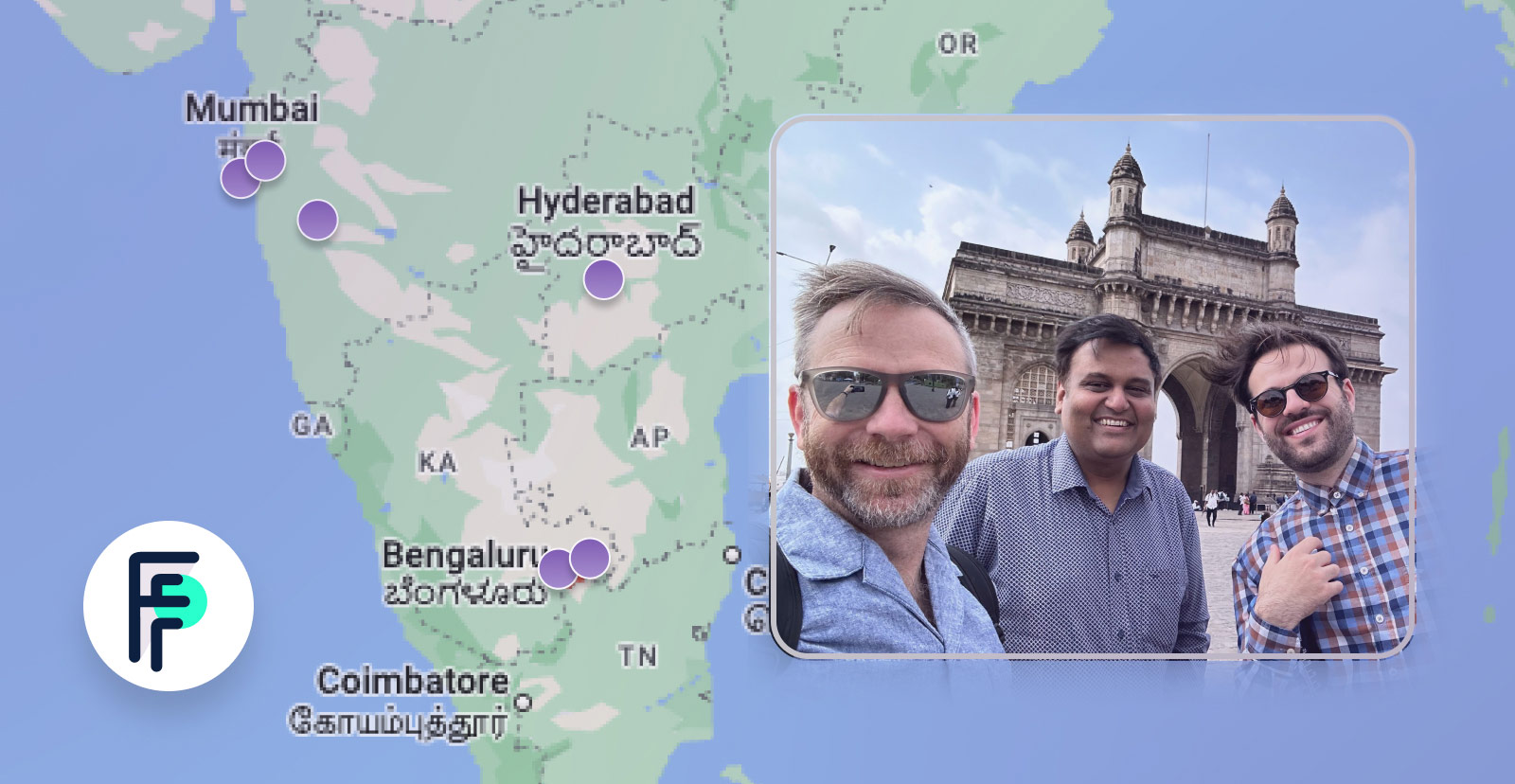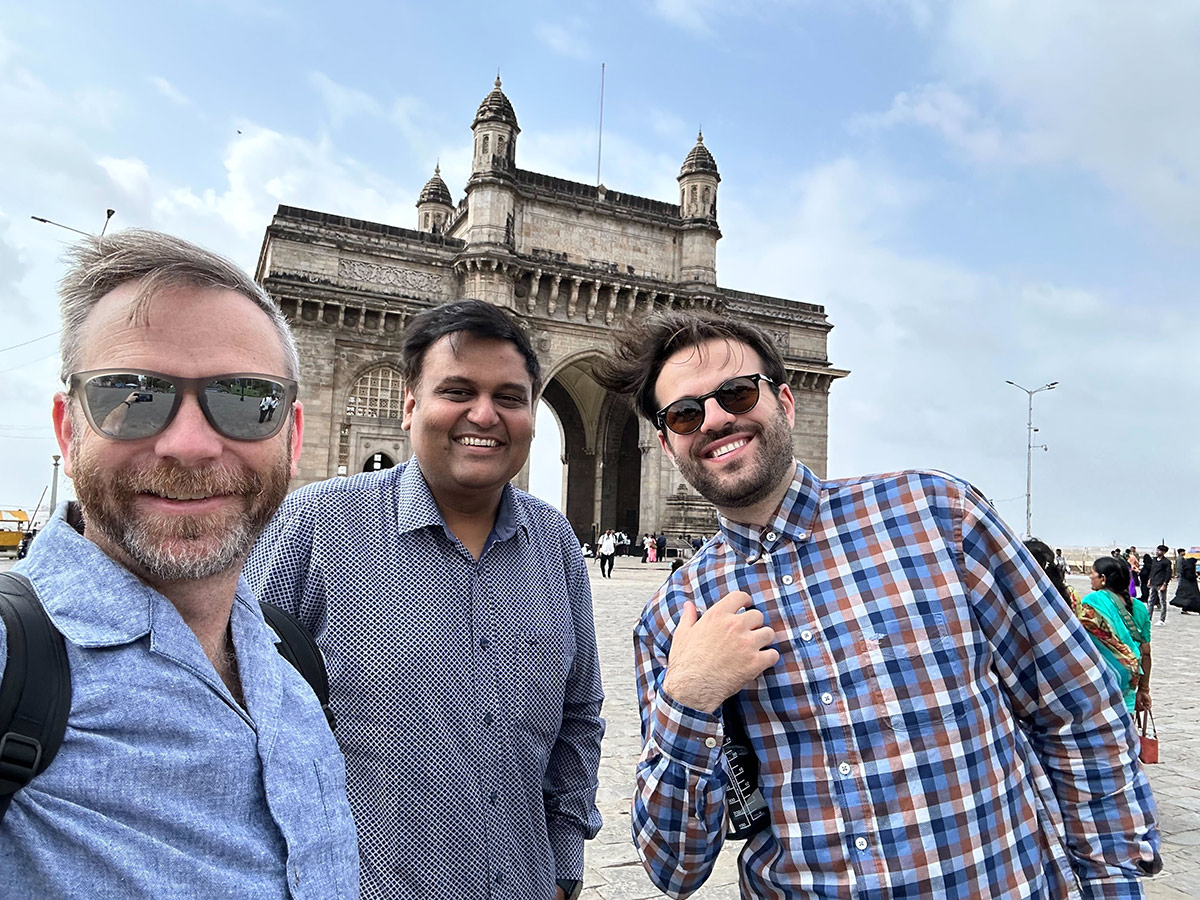5 Things We Learned in India
 Matt Butcher
Matt Butcher
india
roadshow

On June 10th, Fermyon CTO Radu Matei and I flew into Bangalore and met up with Rajat Jindal from the Fermyon Cloud team. Kubernetes Community Day (KCD) Mumbai ’23 was happening on June 17th, and we decided to fly in early to visit several other cities before the main event.
Saiyam Pathak, head of developer advocacy at Civo, organized the Disrupting Tech: Wasm Edition series of meetups, and we traveled with Saiyam from Bangalore to Hyderabad, to Pune, and then on to Mumbai and Thane. Along the way, we spoke at several meetups, visited T-Hub, met with a number of entrepreneurs, hung out with Janakiram MSV, and met hundreds and hundreds of engineers and developers. (And I ate some of the best food I have ever tasted!)
Here are my top five takeaways from the trip.

1. India’s tech scene is nothing short of explosive
India’s tech scene is growing at a pace I have never witnessed before. From the big multi-company tech campuses in Bangalore to the rapid building projects in Hyderabad, it feels like tech is sprouting from the ground.
On our first day we visited the Google campus in Bangalore. I will mince no words: The buildings were nicer than the Google office I worked at in Palo Alto. And when we arrived in Hyderabad a few days later, Rajat pointed out that many of the tech buildings in our area were built within the last three years.
In Pune we visited the Infosys campus, a beautiful and vibrant place, and spoke at a meetup that pulled folks in not just from Infosys itself, but from the Cloud Native and Rust communities as well.
2. Open source and cloud native rule the day
When Divya Mohan gave her opening remarks at KCD Mumbai ’23, she noted that developers from India are highly engaged in both open source development and evangelism in the CNCF. (Watch her entire talk. It is great.) She points out that India has the 3rd highest open source contributions across all CNCF projects.
Similar stories repeated as we visited various meetups. From Docker captains and CNCF ambassadors to college students eager to get engaged, repeatedly we heard how folks value contributing to and participating in open source projects.
Certainly we at Fermyon have experienced this. I met Rajat (now one of Fermyon’s engineers) because of his open source contributions to our Bartholomew CMS, but I knew of him even before that because of his open source Good First Issue project. Open source is a great way to build your profile within a tech ecosystem.
Even while we were there, Robin Thomas contributed an OpenAI unit to the Spin Workshop.
It has been great to see so many of the developers we met in India join our discord, contribute in various ways, and interact with us on Twitter and Threads. This is all the open source spirit of collaboration.
3. Students and young engineers are pioneering
There are two reasons why I am now convinced that the entrepreneurial spirit in India is rapidly surpassing even the oft-celebrated Silicon Valley story. The first reason I say this is because of the students (and the next reason is in #4 below).
Groups of students, sometimes ten or more from the same university classes, came to meetups together. They sat together, took notes together, and stayed afterward chatting. We saw this in Bangalore, in Hyderabad, and in Mumbai.
A few times I asked a student or two why they did this. And I got the same answers: (a) students have an insatiable hunger to be on the very cutting edge, and (b) by coming together, they could find new tech with which to do their semester projects.
It is interesting to read between the lines. These students came from amazing universities where they studied Java and C and all of the usual suspects. It would be easy for them to stick to the curriculum and do what it takes to get the grades.
But they understood that finding and trying out the most exciting new technologies is a gateway to bigger career opportunities. Saiyam mentioned this in passing during a talk: Students are happy to sit in classes and do the work to get the grades. But these same people are passionate about tuning into livestreams (like Saiyam’s) to find out about the state of the art.
4. Institutions support the entrepreneurial mindset
The second reason why I believe India is launching to the fore of the entrepreneurial tech world has more to do with the institutional approach to innovation.
T-Hub exemplified this for me (though it is by no means the only such endeavor). T-Hub is like a startup accelerator with a co-working space and a maker lab for prototyping. The social environment provides good food, ample networking opportunities, and tons of educational resources (like lectures and classes).
Janakiram invited us (along with Saiyam) to participate in a round-table discussion with CEOs and CTOs of startups currently in the T-Hub. We had an insight-packed round table discussion ranging from funding and daily operations to hiring to WebAssembly and cloud technologies.
Afterwards, Gajendra Tripathi took us on a tour of the T-Hub campus and we chatted with folks. We learned that a few dozen companies start at T-Hub each month, and that the pitch-based process for entering is quite competitive. We learned about the various systems for taking a startup from incubation to growth stage, all under one roof.
But what has stuck with me most is that T-Hub is a government-funded effort. Regardless of one’s opinions about government funding, this clearly and resoundingly speaks one thing: India’s upward momentum is not just confined to a few ambitious companies, but is institutional.
5. WebAssembly is a game changer for several reasons
A big part of the reason we were in India was to talk about WebAssembly and Spin. Talking is always more effective when informed by listening. After every event we got plenty of time to just hang out and chat. And learn.
As WebAssembly and serverless apps gain prominence, it is clear how these technologies are helpful in an environment experiencing such rapid technological growth. Faster execution. Cheaper operation. Easier developer experience. Services like Key/Value storage simply built-in and always available. These features enable developers to be more productive while saving money. In turn, these are hallmarks of a healthy startup environment.
What stuck with me, and even now a few weeks later continues to motivate me, is that if we at Fermyon do a good job building these tools, we can participate (albeit at a distance) in the meteoric growth that we witnessed on our trip along the western half of India.
While on our journey from Bangalore to Mumbai, we made many new friends, learned a lot, and developed a deeply rooted respect for the booming tech industry in India. To the many of you who devoted a Saturday afternoon or a Wednesday evening to coming out to meetups for a chat and some chaat, thank you.